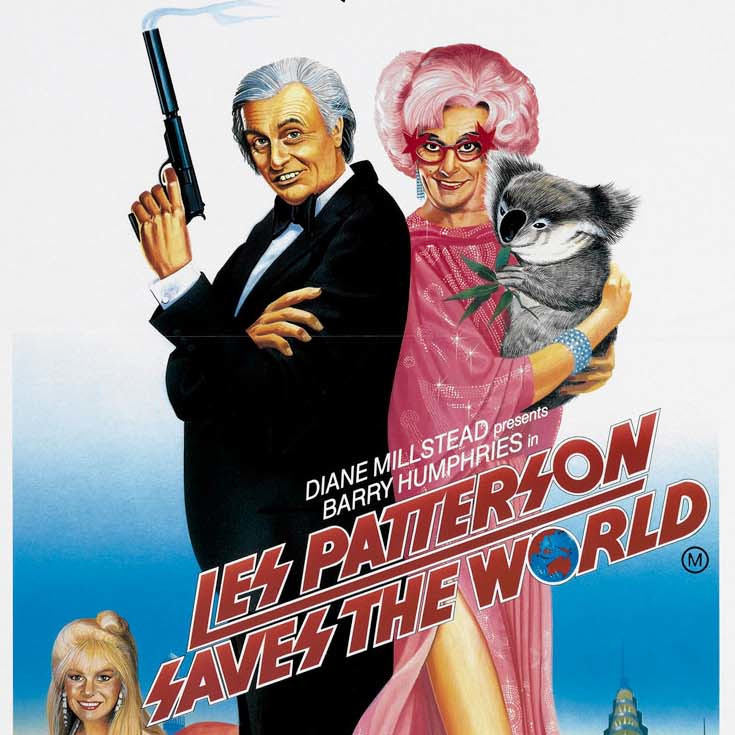Newly-released archival documents revealed in the book ‘Money, art and madness: How the war between bureaucrats & auteurs killed the Australian film industry shows the fallout from the infamous 1987 box office bomb.
By the mid-1980s, Barry Humphries place as a comedic legend of the stage was all but assured. Now silver screen success beckoned after the improbable run of Paul Hogan’s Crocodile Dundee, which swept the global box office in 1986.
But it wasn’t Humphries’ popular Dame Edna Everage character who would take centre stage, but his foul-mouthed diplomat alter-ego, Sir Les Patterson.
There was one problem : the script behind Sir Les Patterson Saves the World was less than promising, according to the Australian Film Commission (AFC). The government’s film agency harboured strong reservations, yet still invested $676,000 of the film’s $7.37 budget via its Special Production Fund.
“The positive elements of this film – the immense popularity of Barry Humphries and his characters, the sometimes funny jokes and the earlier success of the first Bazza film [The Adventures of Barry McKenzie] were all contributing factors to AFC investment,” an internal AFC report from February 1988 said.
“In his report to Commissioners, the Acting Director outlined the many times the script either fails to amuse or attains unplumbed depths of bad taste. Partly in response to this, he recommended that an AFC investment be recouped in first position.”
The story followed Sir Les — now Australia’s Ambassador to the United Nations — who accidentally sets the leader of fictional oil-rich Gulf State, AbuNeveah, alight with an inadvertent fart. The Australian Prime Minister (a look-alike Bob Hawke) sends Sir Les to AbuNeveah to win back the country’s dictator. Hi-jinks ensue and Sir Les eventually becomes a hero by stopping the government’s plan to spread a biological weapon called H.E.L.P, which bore an unfortunate resemblance to a new virus called AIDS.
The premiere of Sir Les Patterson Saves the World in April 1987 attracted a huge crowd including then-Treasurer Paul Keating. The film was not well received by the audience. Keating’s exact comments after the premiere weren’t reported at the time but Sir Les Patterson Saves the World director George Miller later claimed Keating said: “Why are we funding this shit?”.
The film was quickly pulled from cinemas and, somewhat unfairly, became a notorious emblem of everything wrong with the film industry. It never recouped Hoyts’ marketing costs and the AFC wrote off its entire $676,000 investment.
“Obviously, it was hoped that Barry Humphries’ usually adept technique would overwhelm the bad jokes and give a framework to the excruciating taste,” the AFC report said.
“Unfortunately, the film is a dud. The offensiveness has neither focus nor purpose (is it bitterness perhaps?) and most of the jokes fall flat. The direction and performances have failed to rise above the script.
“Following the first ten minutes (which contain the two jokes I laughed at — the exploding fart and the stretch FJ) the film plummets to pure awfulness. Sadly, it lacks the heart and soul to give promise of cult status.”
Humphries, who died in April 2023, would never again headline a major Australian film. But his status as a legend of Australian theatre and TV would remain untarnished among the public.
Read the full story about Sir Les Patterson Saves the World and other tales from the film industry in the book Money, art and madness: How the war between bureaucrats & auteurs killed the Australian film industry.


